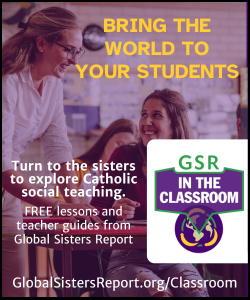Combatting parental fears about schoolies
Communication will help adolescents take responsibility for their actions throughout Schoolies celebrations, says a youth culture expert.
Professor Alison Hutton, who leads research into young people’s health promotion, harm minimisation and youth safety at the University of Newcastle, emphasises encouraging students to be mindful of the impacts that excessive partying and celebrations can have on local communities.
She said parents should ask their children if they have concerns they want to talk through before going to Schoolies.
‘Before they leave, talk to your child about what they expect to do and who they are going to go with,’ Professor Hutton said.
She advises encouraging schoolies to walk around in the daytime, stay in familiar places and agree on meeting places with friends in case of separation.
‘It is important to remind them to stay with their groups of friends and to not allow a friend to go off on their own’.
She advised parents to negotiate a regular contact schedule with their child to ensure these boundaries are respected.
‘Also, if they would like to speak to you but don’t want their friends to know – organise a code word where they can text you and you can ring them. Ensure that they understand that they can ring you at any time if they need support. They may want to consider taking a battery charger,’ she said.

She reminds parents to encourage children to identify two people who can support them while at schoolies and to make sure they have swapped mobile numbers with them.
Urgent plea to save female students
A group of Australian teachers who teach Afghan women refugees via videolink want the federal government to grant their students Australian visas on humanitarian grounds.
Virtual School Australia teaches five young women from Afghanistan who fled to Pakistan to escape persecution by the Taliban. However, the Pakistan government recently decided to expel all Afghan refugees, forcing them to return to the Taliban, where they face imprisonment or murder.
Read more.
Advocates call for new 15,000 homes for children and young people
Homelessness and housing groups have launched a national plan to fix housing for young people, after analysis revealed almost 40,000 young people are alone, homeless and locked out of Australia’s social and affordable housing system.
Almost half of these are First Nations or children aged 15-17 years old who had sought help from a homelessness service. Nearly three-quarters of the group were disconnected from all forms of education, training and employment.
A new National Youth Housing Framework launched at Parliament House by a group of peak bodies and frontline services sets out three critical reforms:
• Develop and maintain 15,000 dedicated youth tenancies for 15-24-year-olds across Australia
• Provide linked support so young people can be safe, pursue their goals and transition to independence
• Address the rental gap to ensure viability for housing providers offering tenancies to young people
Community Housing Industry Association CEO Wendy Hayhurst said the federal government was investing billions of dollars in new social and affordable housing and it’s important that young people’s needs are up there as a priority.
‘Using at least some of $1 billion added to the National Housing Infrastructure Facility for supportive housing for young people would be a start, which the National Housing and Homelessness Plan should build on’.
Call for principals to report antisocial and extremist behaviour
As the conflict between Israel and Palestine escalates, the NSW school sector has seen an increase in violence, antisocial and extremist behaviour. Principals are advised that any antisocial and extremist behaviour must be reported to the NSW School Incident Report and Support Hotline on 1300 495 051.
The hotline allows school staff in NSW to report concerns about antisocial and extremist behaviour around the clock, providing advice, consultation and referral to police where required.
What’s On
Applications for the eSafety Youth Council are open for young people aged 13-24. The eSafety Youth Council allows youth to communicate with industry leaders and government to help them understand what a safer online world could look like. Read more.
Call for schools to join implementation trial to foster cultural responsiveness in schools. The trial will focus on evaluating the impact of AITSL’s Intercultural Development Self-Reflection Tool on teacher attitudes, values, and beliefs about Aboriginal and Torres Strait Islander histories and living cultures. Find out more.